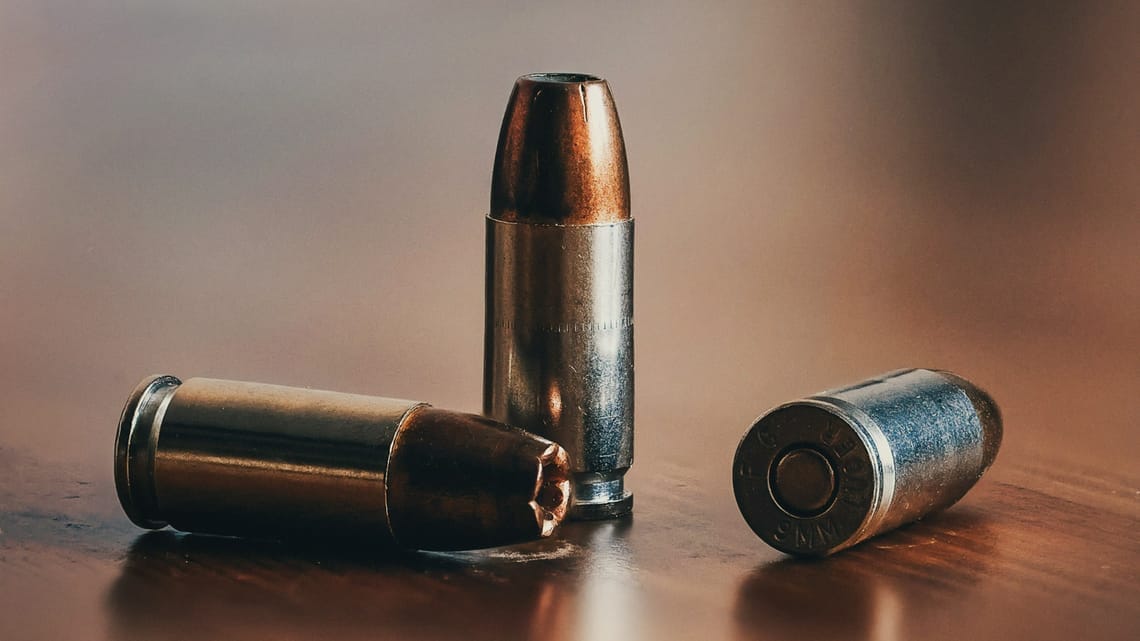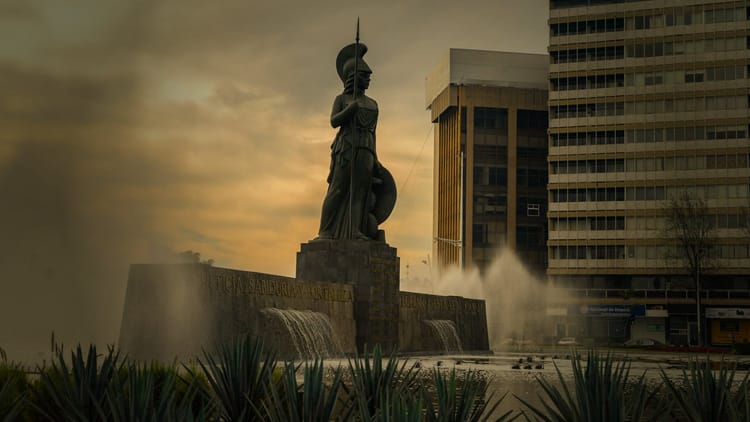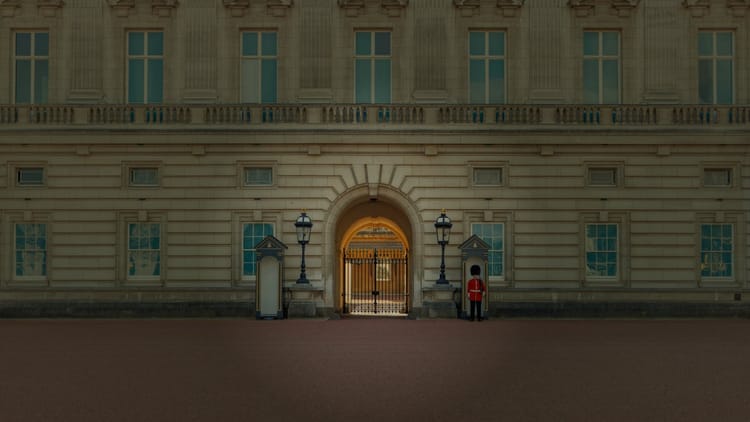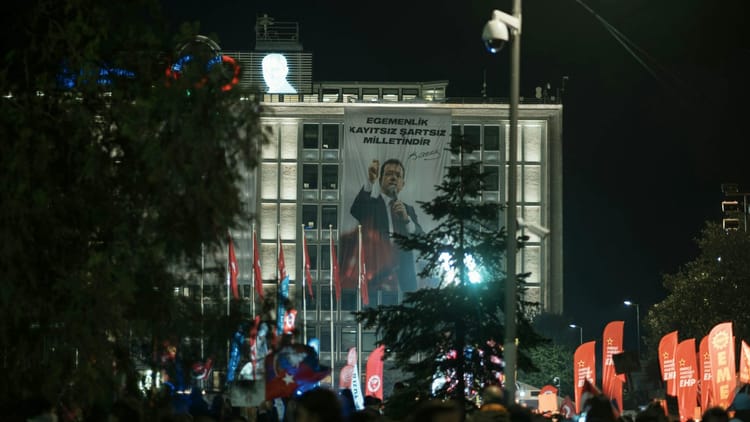Burdens of proof

Recently: Ukrainian officials stole US$100 million meant to protect nuclear plants from Russian strikes—and funneled money to … Russia. Moscow paid on TikTok to manipulate Romanian elections. China is engineering corruption into development projects across 10 countries. What’s going on?
Today: How has the U.S. government built its case against the former FBI Director James Comey? A federal judge lays out a pattern of investigative missteps and potential misconduct.
+ For members: How much does North Korea depend on China and Russia for its future? Rachel Minyoung Lee on nuclear weapons, technology transfers, and a newly emboldened Kim Jong Un.
& New music from Aaron Parks ...
A prosecution frays
A U.S. federal judge has ordered the Justice Department to release all grand jury material in the prosecution of the former FBI director James Comey, citing a “disturbing pattern of profound investigative missteps” and “government misconduct” that could threaten the case’s viability. Magistrate Judge William Fitzpatrick excoriated prosecutors for their rushed investigation and “cavalier attitude” toward Comey’s constitutional rights.
The judge singled out the interim U.S. attorney Lindsey Halligan—a former personal attorney of President Donald Trump’s, with no prosecutorial experience—for apparently misstating key aspects of the law when instructing grand jurors. Halligan suggested Comey would have to explain his innocence at trial, mischaracterizing the government’s burden of proof—and the core democratic principle of presumed innocence that determines it. Prosecutors also seemed to misuse materials seized during a previous investigation of Comey’s attorney, potentially violating attorney-client privilege and court orders.
The errors in question suggest a pattern. Trump installed Halligan after demanding the prosecutions of Comey and other enemies. Prosecutors rushed to indict. Grand jurors asked tough questions about the case—questions prosecutors deflected. They rummaged through privileged materials without authorization. The judge now warns the entire indictment could collapse. The question prosecutors leave unanswered: What happens when a Justice Department built for impartial law enforcement gets deployed for political revenge?

Meanwhile
- The Kremlin’s weekend assault on Ukraine. Russian forces launched a massive overnight strike on Saturday into Sunday, firing ballistic missiles and deploying more than 130 drones across Ukraine. The attack killed at least nine people and injured more than 50, with strikes hitting the Kyiv and Kherson regions. Ukrainian forces reported 195 combat engagements on Sunday alone as Russian troops advanced on Pokrovsk, the largest city Moscow has threatened since capturing Bakhmut in May 2023. Ukraine withdrew from villages in Zaporizhzhia while striking back at Russian oil facilities on the Black Sea.
- The carrier in the Caribbean. The USS Gerald R. Ford—the world’s largest aircraft carrier—entered the Caribbean Sea on Sunday with more than 4,000 sailors and dozens of tactical aircraft aboard. The deployment, part of the newly announced Operation Southern Spear, joins 15,000 U.S. troops already in the region. The Pentagon struck another alleged drug boat on Saturday, the 21st such strike, bringing total deaths from the strikes to at least 83. U.S. Secretary of State Marco Rubio designated Venezuela’s Cartel de los Soles as a terrorist organization on Sunday, alleging that President Nicolás Maduro leads it.
- Slight change from the White House on the Epstein files. On Sunday evening, President Trump called for Republicans in the U.S. House of Representatives to support releasing files related to the late convicted sex offender Jeffrey Epstein, reversing his week-long resistance to the effort. The House will vote this week on a discharge petition that garnered its final signature last week, forcing the chamber to act. Upward of a thousand women alleging abuse by Epstein released a public-service announcement on Sunday showing photos from their teenage years and urging Congress to “bring the secrets out of the shadows.” House Speaker Mike Johnson dismissed the effort as political theater despite Republican co-sponsors backing it.
- The tariffs grip Tokyo. Japan’s economy shrank 1.8 percent on an annualized basis in the third quarter, government data released Monday showed—the first contraction in six quarters. Exports fell 1.2 percent as U.S. tariffs bit into manufacturing. A July deal set reciprocal tariffs at 15 percent between Washington and Tokyo. Residential investment plunged 9.4 percent after Japan mandated stricter energy conservation standards for new projects starting in April. The contraction came in smaller than forecasts of 2.5 percent, with government consumption helping limit the decline.
- A chipmaker’s internal warfare. The gear-chip maker Nexperia’s Chinese facilities sent a letter to employees on Friday accusing Dutch management of “maliciously sabotaging” operations, escalating a battle that threatens global auto production. The Netherlands seized the Chinese-owned chipmaker in September over concerns it would transfer technology to China; Beijing responded by freezing chip exports vital to carmakers. Friday’s letter responds to a November 12 message from Dutch headquarters that Chinese managers said “distorted the facts.” The CEO of Dutch chip-equipment giant ASML warned on Sunday that the crisis shows how fragile semiconductor supply chains are.

Wary of fast fashion?
Shop Congo Clothing Company and
make a difference—in style.
Feature
The three-body problem
How much does North Korea depend on China and Russia for its future? Rachel Minyoung Lee on nuclear weapons, technology transfers, and a newly emboldened Kim Jong Un.

Of all the ways the war in Ukraine could have gone, few people predicted—or even imagined—that soldiers from North Korea would end up fighting in Europe on behalf of Russia. But that’s what happened.
In October 2024, Pyongyang agreed to send 10,000 troops to Russia’s Kursk region to help push back Ukrainian forces from Russian territory. Moscow and Pyongyang tried to hide it—the North Korean troops got Russian uniforms and fake identities—but North Korea’s Supreme Leader Kim Jong Un acknowledged the troop transfer in April this year.
By now, at least 2,000 North Koreans have died in Russia, with some estimates as high as 4,000. In June 2025, Kim announced he was sending Kursk another 1,000 soldiers to clear mines and about 5,000 military construction workers to rebuild infrastructure in the region.
This unprecedented military support is the most striking part of the new, broad alliance between North Korea and Russia. They signed a comprehensive treaty in June 2024, covering political, military, and economic cooperation. Pyongyang started selling arms to the Kremlin in late 2023 and has become Russia’s biggest external supplier, sending millions of artillery shells, rockets, and mortar rounds, along with launchers and missiles.
The new relationship means a lot for North Korea, too. Though some defense deals remain secret, reports indicate North Korea is getting fighter jets, missile systems, technology for reconnaissance satellites, and assistance with nuclear-submarine development and tactical-nuclear capabilities. It’s also getting critical economic commodities, along with a tourist train that began running between Russia’s Vladivostok and North Korea’s Rason in May.
The partnership’s implications seem big: When the Chinese Communist Party held its Victory Day celebrations on September 3 to commemorate the 80th anniversary of Japan’s surrender to China at the end of World War II, Kim and Vladimir Putin got the seats on either side of Xi Jinping.
What’s changed?
Rachel Minyoung Lee is a senior fellow in the Korea Program at the Stimson Center in Washington and a former intelligence analyst for the U.S. government. Lee says the new relationship with the Kremlin has emboldened Kim Jong Un. Maybe most importantly, he’s acting more boldly about his country’s nuclear program. In September 2024, North Korea codified its possession of nuclear weapons into its Constitution, and Kim says he won’t even talk about giving them up. His strong backing in Moscow appears to be influencing how Kim deals with China and South Korea.
It might also be changing how China deals with him: As his seating at the Victory Day parade—and summit with Xi—suggest, Beijing now seems to want stronger ties with Kim to balance his tilt toward Moscow …
Your loyal guide to a changing world.
Membership with The Signal means exclusive access to premium benefits:
- Regular profiles on the questions behind the headlines
- In-depth feature interviews with our network of specialist contributors from across America and around the world
- The despatch, our weekly current-affairs and cultural-intelligence briefing
- Early access to new products, including print extras
It also means vital support for an independent new enterprise in current-affairs journalism.
New music
‘Parks Lope’
The pianist and composer Aaron Parks expands his trio—him, Ben Street on bass, and Billy Hart on drums—into a quartet with the tenor saxophonist Ben Solomon to explore a new color palette on his luminous new record, By All Means. Here on “Parks Lope,” the combo nods to John Coltrane from the Ballads era of the 1960s, with easy pacing and confident solos, while Parks’s poised, beautiful piano makes the track and album perfect for late-night listening.





